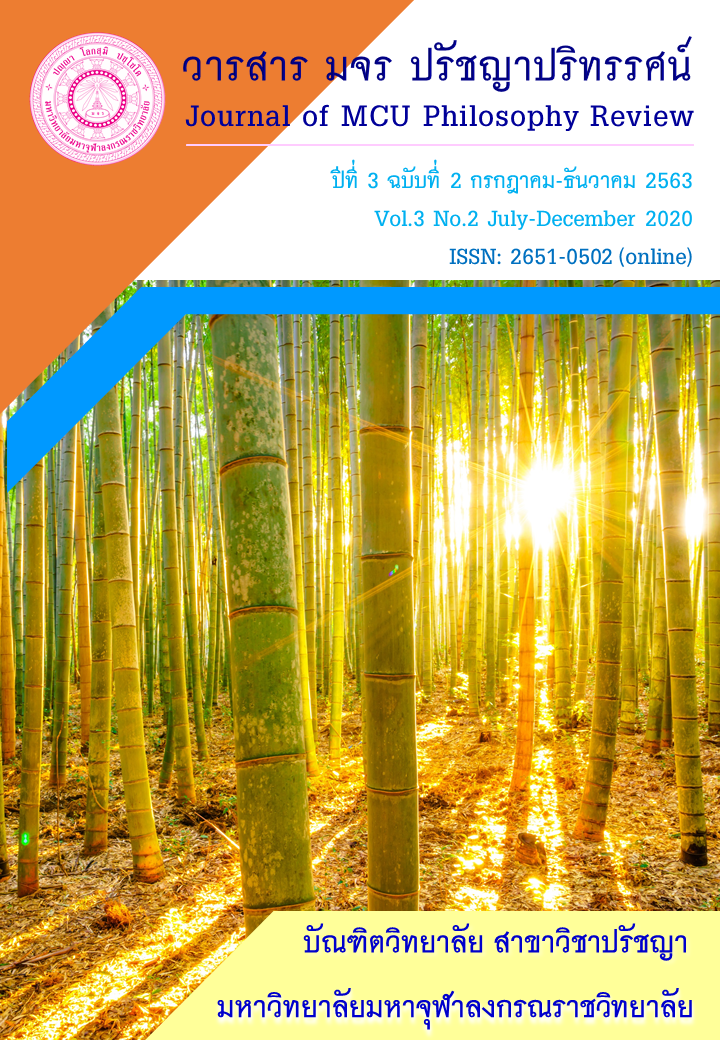Philosophy of Education and the University’s Educational Management Model in Thai Society
Main Article Content
Abstract
This article aims to study the concept of educational philosophy and to create the University’s Educational Management Model in Thai society. This is a qualitative research done by studying academic documents. It was found that there are six groups of philosophical concepts: 1. Essentialism 2. Perennialism 3. Progressivism 4. Reconstructionism 5. Existentialism 6. Buddhism. In the fact, the university in Thai society can be divided into 3 groups: in the first, it believes that the university is the one that seeks the truth according to the pattern of the progressivism and existentialism that were the community of people who want to learn. In the second, the university must meet the society’s demand as essentialism reconstructionism. In the third, it has been training people with the highest virtue or truth according to the principles of Perennialism and the Buddhist philosophy. In the universities of Thai society, it should be not the first and the third, but it should be the second. It is set up for the needs of the state to meet the government's policy and want to create a democratic concept. While the both the content and the teaching focuses on telling, memorizing and grading, looking at how much memorizing it is but not focusing on the argument. Finally, it makes the teacher as prophet and makes students as good follower.
Article Details
บทความที่ได้รับการตีพิมพ์เป็นลิขสิทธิ์ของวารสาร มจร ปรัชญาปริทรรศน์
ข้อความในบทความที่ได้รับการตีพิมพ์ในวารสาร ถือเป็นความรับผิดชอบของผู้เขียนบทความ และข้อคิดเห็นนั้นไม่ถือว่าเป็นทัศนะและความรับผิดชอบของกองบรรณาธิการวารสาร มจร ปรัชญาปริทรรศน์
References
กีรติ บุญเจือ. (2526). ปรัชญาภาษา. กรุงเทพมหานคร : ไทยวัฒนาพานิช.
พระพรหมคุณาภรณ์ (ป.อ.ปยุตฺโต). (2553). พจนานุกรมพุทธศาสน์ ฉบับประมวลศัพท์, พิมพ์ครั้งที่ 15, กรุงเทพมหานคร: สหธรรมิก.
มหาจุฬาลงกรณราชวิทยาลัย. (2539). พระไตรปิฎกภาษาไทย ฉบับมหาจุฬาลงกรณราชวิทยาลัย.กรุงเทพมหานคร : โรงพิมพ์มหาจุฬาลงกรณราชวิทยาลัย.
ราชบัณฑิตยสถาน. (2553). พจนานุกรมศัพท์ภาษาศาสตร์ (ภาษาศาสตร์ประยุกต์). กรุงเทพมหานคร : ราชบัณฑิตยสถาน.
สุริยา รัตนกุล. (2555). อรรถศาสตร์เบื้องต้น. พิมพ์ครั้งที่ ๒. กรุงเทพมหานคร : มหาวิทยาลัยมหิดล.
โสรัจจ์ หงศ์ลดารมภ์. (2552). ปรัชญาภาษา. กรุงเทพมหานคร : จุฬาลงกรณ์มหาวิทยาลัย.
Austin, John L. (1962). How to Do Things with Words. Oxford: Oxford University Press.


